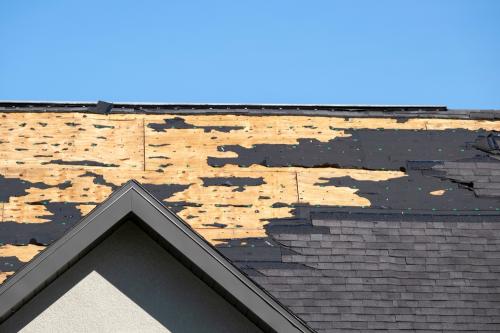When the future graphs the history of public housing in the United States, two political events will appear as devastating declines.
The first was passage of the 1949 Wagner-Taft-Dingell bill that promised “a decent home . . . for every American family.” From 1937 to 1949, public housing had helped provide affordable housing to low-paid workers. Washington subsidized the construction and pretty much removed the capital costs; the operating costs were to be paid by local authorities from the rent rolls. After 1949, public housing became increasingly a refuge for the jobless, a roster increasingly dominated by the socially disorganized, especially unwed mothers.
The second disaster was Senator Edward Brooke’s 1975 amendment limiting the rent in public housing to no more than 30 percent of a tenant s income. A 1965 housing act had already freed local authorities from the requirement to pay operating expenses out of rent rolls, and Brooke assumed that an agency of government at some level would make up the difference between the cost of maintaining an apartment and the new rent ceiling. He did not contemplate what actually happened— that the local housing authorities would remain confined to their own income stream, and everyone who lived in “the projects” would suffer the effects of deterioration.
Meanwhile, advocates for the least successful students in the public schools pressed Congress to fund programs for “special education.” Because the school systems received greater revenues if they had more problem kids, more kids were diagnosed with problems. When it was discovered that most of the children in the special ed classes did not improve their performance, the advocacy shifted to a philosophy of mainstreaming— there was still extra money for special ed, but children with problems were “entitled” to be with their peers. That entitlement, like all others, was enforceable in court.
Not infrequently, what made the children “special” was disruptive behavior. Teachers who can manage such behavior are hard to find. Run-of-the-mill teachers can be seriously distracted from their work with the rest of the class. Non-special children pay the price. In the end, just as the people who would make the best neighbors abandon the housing project, the teachers and children who set the tone of a successful school move away. The losers are the larger number who, of necessity, stay put.
These results derive from fundamental tendencies in the American polity. From the Enlightenment, Americans inherited a central belief in individual rights, whether or not they discomfit the majority. Americans have never had much sense of the greatest good for the greatest number.
Add a can-do philosophy and the idea that bad luck should be illegal, mix well in committee under the watchful eye of crusading lobbyists, and leave the definition of the legislative language to future court cases. Inevitably, you get “the essential fact” Senator Daniel Patrick Moynihan noted in Maximum Feasible Misunderstanding, his book about the “great national effort at social change” in the 1960s. His fact: “the government did not know what it was doing.”
No small part of the problem is the reliance on lawsuits to enforce “rights.” Judges must look backward to the law as it was on the date of the alleged transgression and remedy the individual damage. Lawsuits are anecdotes. Legislators are supposed to weigh future consequences to entire communities. To leave significant policies at the mercy of lawsuits is to invite the counterproductive “reform” that characterizes so much social policy, especially in the areas of public housing and public schools.
In both, we must manage what the police departments call “quality of life issues.” Both do need money they’re not going to get, but they need even more the power to determine what will most benefit the greatest number of their essentially voiceless populations. This will have some terrible consequences. Sadistic junior managers in brief authority will torment people required to keep their apartments in good shape or lose their housing. Hostile teachers will drive struggling students to tears and despair. Even the most robust administrative controls— and there is clear need for ombudsman procedures in both institutions— will not avoid awful anecdotes, some of which will make the newspapers.
But without such grants of authority our hopes will continue to be barriers to opportunities. A bill passed by Congress this spring on special education and several proposals on public housing begin to dismantle these barriers. We can get results through incremental progress improving the skills of the more educable who don t now learn, cleaning out the squalor that now afflicts the more ambitious in public housing. Once we have learned to do the merely difficult, perhaps we can tackle the impossible. Today’s governments cannot afford the wishfulness that lets the best become the enemy of the good.
The Brookings Institution is committed to quality, independence, and impact.
We are supported by a diverse array of funders. In line with our values and policies, each Brookings publication represents the sole views of its author(s).



Commentary
The Enemies of the Good
June 1, 1997